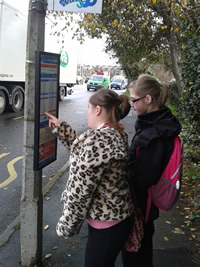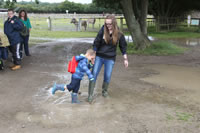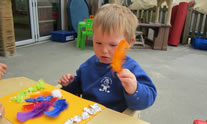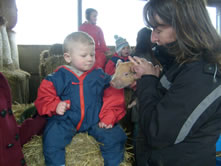General Information
School aims... what is our purpose?
 We aim to prepare pupils for their future lives. We teach pupils the skills, knowledge, and confidence to enable them to gain as much independence as they possibly can. We help pupils to make choices, and provide opportunities for them to become part of the wider community. We work with pupils to reduce the effect of their disabilities and manage other challenges that get in the way of their learning.
We aim to prepare pupils for their future lives. We teach pupils the skills, knowledge, and confidence to enable them to gain as much independence as they possibly can. We help pupils to make choices, and provide opportunities for them to become part of the wider community. We work with pupils to reduce the effect of their disabilities and manage other challenges that get in the way of their learning.
We aim to support and encourage pupils' present and future happiness and well-being. We ensure that everyone in the school is respected, and that everyone works at and develops good relationships and friendships. We hope to make school a safe place for fun and enjoyment. We try to ensure pupils know right from wrong, and that we support their emotional, social, and spiritual development. We try to ensure that pupils understand and adopt healthy lifestyles.

We aim to give our pupils an education that meets the highest expectations of all. We provide pupils with an exciting and challenging time in school. We give pupils a curriculum that meets their individual needs. We also give pupils the same curricular opportunities (at a level they understand) as their brothers and sisters in mainstream schools. We aim to make pupils time in school interesting, exciting, and challenging.
We have high standards in the school and we aim to maintain and improve those standards, and hold ourselves accountable for them.
Beliefs and values... what do we think is really important?
We believe that the individual child is at the centre of all that we do... that every child is an individual and is to be respected, valued, and nurtured... and that every pupil has a 'voice' and that this voice should be listened to and encouraged.
We believe that the individual pupil is at the centre of all actions and that their learning is the key to their future lives. We believe we must strive always to make their learning successful and we can do this best by skillful teaching (including the highest possible expectations), an exciting school curriculum (in and out of lessons), supportive school structures, and by a real partnership with families.
 We believe all have a right to happiness and to feel good about themselves. We believe fun in learning, and friendships, are vital to this happening. We believe we need to develop the whole child and encourage confidence and self-esteem. We believe we need to recognise and celebrate everyone's achievements.
We believe all have a right to happiness and to feel good about themselves. We believe fun in learning, and friendships, are vital to this happening. We believe we need to develop the whole child and encourage confidence and self-esteem. We believe we need to recognise and celebrate everyone's achievements.
We believe in the community or family of the school... because all living in it are supported and enriched by it. We believe that at the heart of the community lies respect for each other, shared values, and trust. We believe in a commitment to learning and personal growth for all, that we need to be positive, have fun, and enjoy our lives.
Curriculum.... what we teach and how we teach it.
A programme for each child
As a child passes through the school and develops, it could be said that s/he is climbing a ladder. Each step represents a skill and the ladder is taking the child towards independence. Because each child is different and has different strengths, the next rung on the ladder will be unique to them. For some the next step will be sitting, walking, or pointing to a chosen toy, and for others it may be cooking lunch or reading the sports page of the newspaper. Therefore, to meet each pupil's needs an individual programme of work is drawn up every term. This programme is usually a number of steps or goals that the pupil will work on and aim to achieve by the end of that term.
The National Curriculum
 In addition to the above individual programmes, classes or groups will be working on topics that provide exciting, stimulating, and wider learning experiences. National curriculum subjects pitched at an appropriate level will usually determine the content of these topics.
In addition to the above individual programmes, classes or groups will be working on topics that provide exciting, stimulating, and wider learning experiences. National curriculum subjects pitched at an appropriate level will usually determine the content of these topics.
Health education (see including sex education)
There is a health education syllabus that runs through the whole school, ensuring that knowledge is built up gradually over a period of years. So for example, at five years old a child may be learning about washing hands, and at 19 a young student may be learning about boyfriend/girlfriend relationships. As well as this syllabus, individual needs are met as and when they arise, through individual programmes.
Activities outside the classroom
 Beside out of school activities like swimming, horse-riding, and community activities, a large number of pupils spend some time in the school week working alongside mainstream school pupils. Many older students also take part in award schemes like the Duke of Edinburgh Award scheme, and go on vocational (work) experience placements.
Beside out of school activities like swimming, horse-riding, and community activities, a large number of pupils spend some time in the school week working alongside mainstream school pupils. Many older students also take part in award schemes like the Duke of Edinburgh Award scheme, and go on vocational (work) experience placements.
Extended school opportunities
The School offers a series of opportunities for pupils outside ordinary school hours and term times. There are after school clubs for juniors, seniors and for
those interested in cooking activities. There are holiday play schemes in the main school holidays, a breakfast club, and each term a family day on a Saturday where children and their families can come in and enjoy the facilities in the school. The school also endeavours to provide information to parents about private childcare arrangements.
Parents and families
 our vital partners It is our belief that the most effective learning takes place when school and home work together. Parents are particularly encouraged to take an active part in, and contribute to, the setting of their children's individual termly goals. Parents are always welcome in the school and no appointment is necessary (although prior notice is appreciated).
our vital partners It is our belief that the most effective learning takes place when school and home work together. Parents are particularly encouraged to take an active part in, and contribute to, the setting of their children's individual termly goals. Parents are always welcome in the school and no appointment is necessary (although prior notice is appreciated).
Staff are always happy to make home visits. To help communication each pupil is given a book that passes daily between home and school with news and achievements being immediately exchanged. The school website is designed to be parent friendly and is full of information about the school, including whole school pupil achievement and OFSTED reports. Prospective parents, grandparents, and friends are encouraged to look at the website.